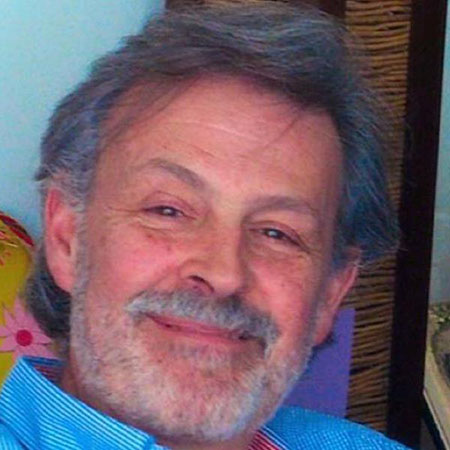Faculty Spotlights >> Juan Carlos Puyana: Trauma Surgeon and International Mentor
Sustainable Health Care Solutions Through Collaboration

Medicine
Juan Carlos Puyana spends his days—and many nights—reimagining surgical care in low-resourced settings.
For good reason.
Born and educated in Colombia, Puyana was painfully aware of the challenges of providing quality medical care in a war-torn society drastically affected by narco-terrorist activities over many years. Hospitals and other facilities lacked resources. Ambulance service was spotty. Wait times for treatment varied, depending on the location, availability and knowledge of first responders. Most importantly, surgeons were hampered by a shortage of data that could provide insight into better treatment protocols and improved patient outcomes.
“The conditions in Colombia prevented me and my classmates from practicing the medicine that we were learning in our textbooks,” notes Puyana. “We needed home-grown solutions—ways to apply the very best medical practices to our unique situation.”
He decided to pursue a surgical residency in Canada followed by a fellowship in trauma and surgical critical care in the United States. It didn’t take long for him to delve further into the coordination of critical care services and trauma surgery, and to foster sustainable partnerships that had the potential to create real change in areas with the greatest need.
“The conditions in Colombia prevented me and my classmates from practicing the medicine that we were learning in our textbooks.
We needed home-grown solutions—ways to apply the very best medical practices to our unique situation.”
Today, as the director of global surgery at the University of Pittsburgh and the O’Brien Chair of Global Surgery at the Royal College of Surgeons in Ireland (RCSI) University of Medicine and Health Sciences in Dublin, Puyana is a leader in creating training and research programs in underserved areas of the world and developing networks of like-minded collaborators.
Puyana worked with former classmates from his medical school in Bogota to create the Trauma and Injury Excellence in Education on Research (TraInEER) program. This provided Colombian physicians with the opportunity to participate in Pitt’s clinical research training programs, learn how to apply for grants and conduct their own clinical research so they could return home and teach others to do the same.
He later invited Colombian researchers in medical informatics to train at Pitt, so they could acquire new skills on data science and clinical informatics back in their own country.
“I am extremely proud that today, these University of Pittsburgh trainees have not only become independent investigators, but they have gone on to create the most successful and productive clinical trauma research institution in Latin America.”
“I am extremely proud that today, these University of Pittsburgh trainees have not only become independent investigators, but they have gone on to create the most successful and productive clinical trauma research institution in Latin America,” says Puyana.
Currently, Puyana is collaborating on a National Institutes of Health-funded international program with universities in Kenya and nongovernmental organizations to develop community-based solutions that improve the safety and availability of blood transfusions in the most remote areas of Kenya.
“No one can do this work in isolation,” he explains. “It takes a community of committed individuals.”
“We all have a social responsibility to contribute our knowledge, experience and concern for helping mankind in whatever way we can,” Puyana concludes.
An Exchange of Ideas
In an effort to broaden an exchange of ideas among North, Central and South American health care providers, Puyana brought the Panamerican Trauma Society headquarters to the University of Pittsburgh. Through this organization, he helped to establish trauma ultrasound, disaster, emergency response and trauma care courses in many cities across Latin America and brought trauma surgeons and surgical residents from many countries to Pitt to observe the daily operations of a state-of-the-art trauma center.
